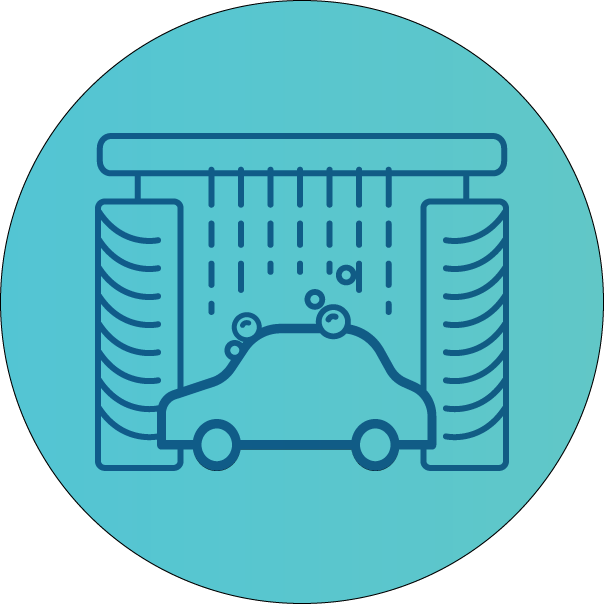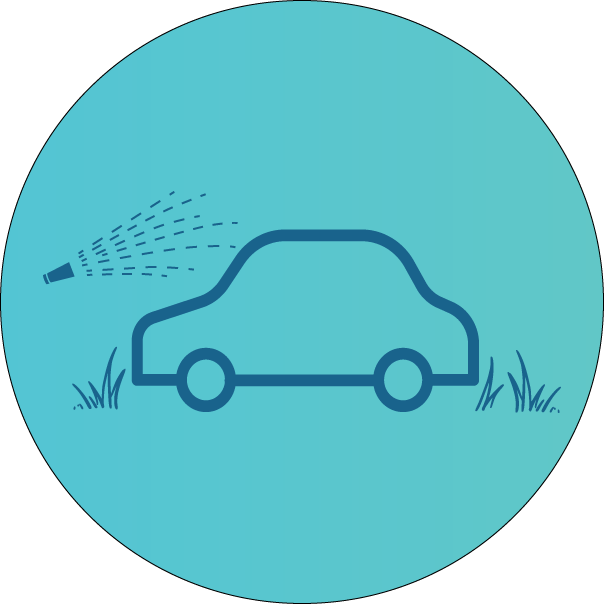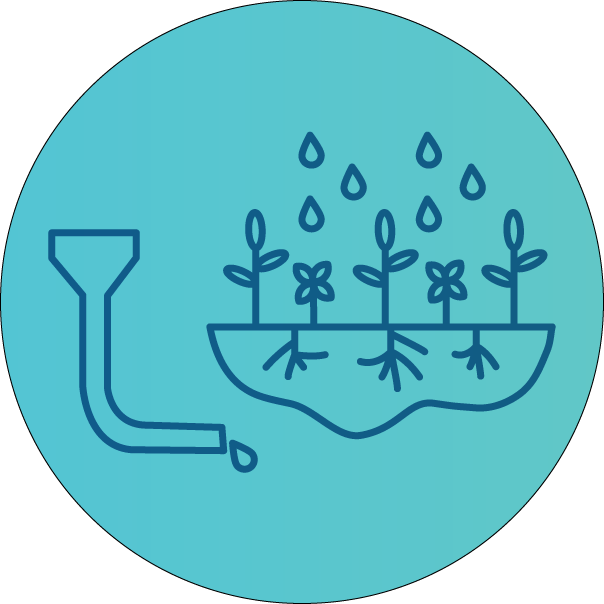Stormwater is runoff that flows across the hard surfaces on the landscape, including roadways, rooftops, and compacted soil. Here in Montana, stormwater flows into surface waterbodies, often without treatment. Unregulated stormwater discharges are a type of nonpoint source pollution, meaning that sources of stormwater pollution are often unidentifiable and dispersed across the landscape. Learn how you can reduce stormwater pollution by being mindful of what you leave on the landscape!

Use a commercial car wash to wash your vehicles and other equipment. At a commercial car wash, the wash water drains to the sanitary sewer where the water is treated. However, when you wash your car in your driveway, the dirty water enters storm drains that discharge directly to local waterbodies. Dirty car wash water often contains oil, grease, and toxic metals. Soapy water and the chemicals in many detergents are harmful to fish and other aquatic life.

Wash your car on grass or in an area where water can filter into the ground and not run off to the storm drain. If your driveway drains to a vegetated area and not the storm drain, that works too. Divert the wash water drainage away from storm drains. To reduce possible runoff from the grassy area, use a hose with a shut-off valve. Dump soapy water in a sink or an area where it will filter into the ground.

Install a rain garden on your property. Rain gardens are bowl-shaped gardens that filter oil and grease from driveways, fertilizers, and pesticides from lawns before they reach groundwater or the storm drain. They also enhance the landscaping and appearance of yards, provide habitat for birds and insects, reduce flooding and erosion in streams, and improve local groundwater recharge by helping water soak into the ground.

Responsibly dispose of household hazardous products, such as paints, pesticides, insecticides, motor oil, and pharmaceuticals at a collection facility. Don’t pour them onto the ground or into storm drains, sinks, or toilets. For small spills, sprinkle with sawdust or kitty litter, seal in a trash bag, and put in the trash. For large spills call your county emergency services or 911.